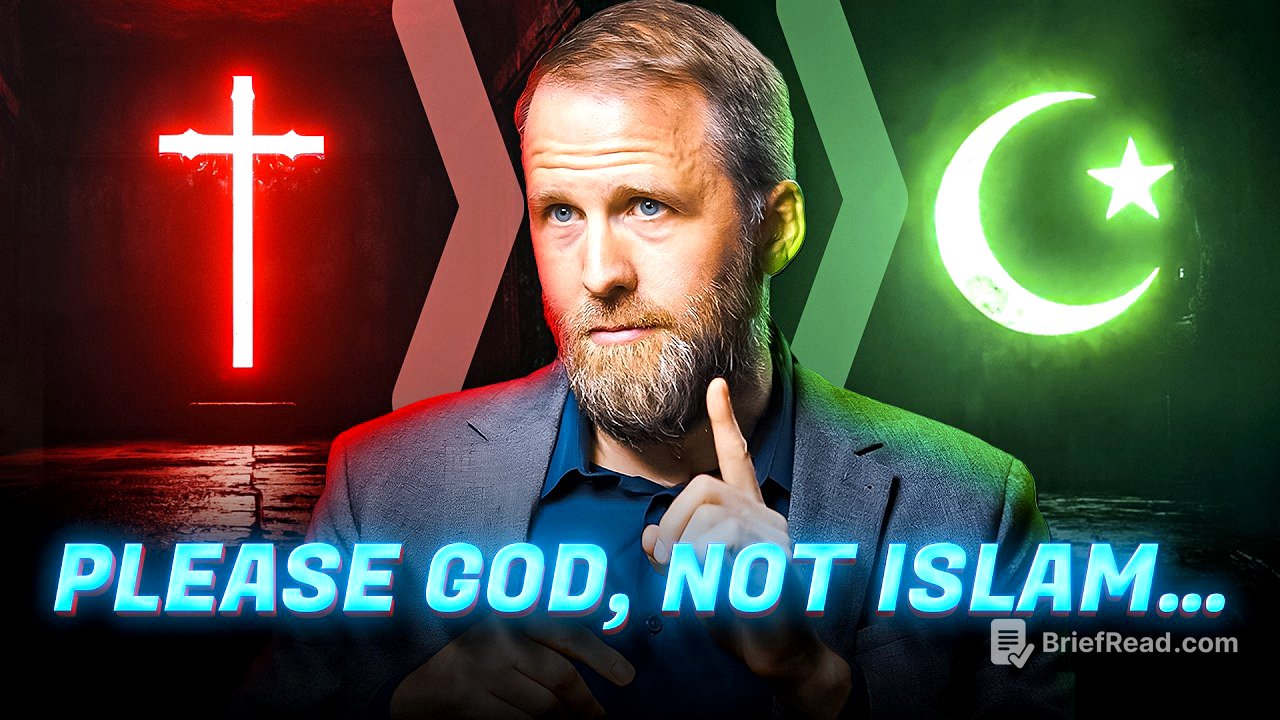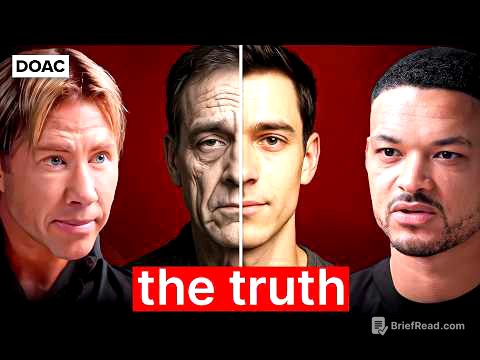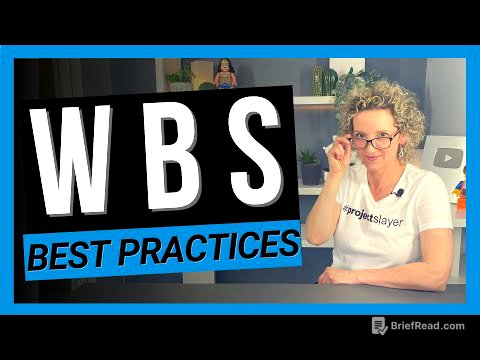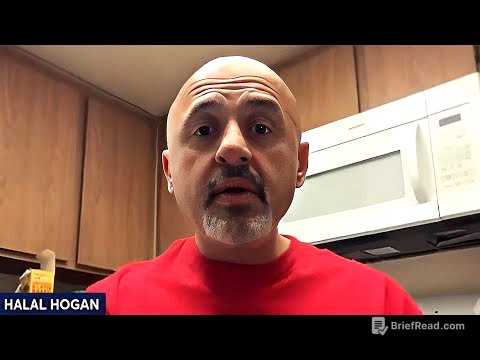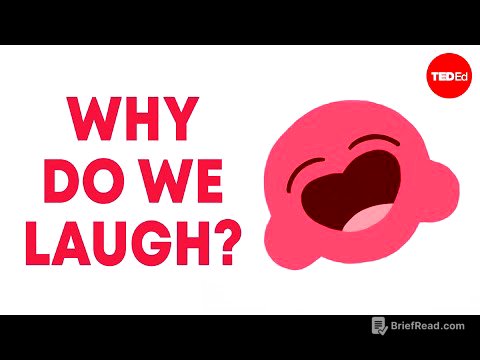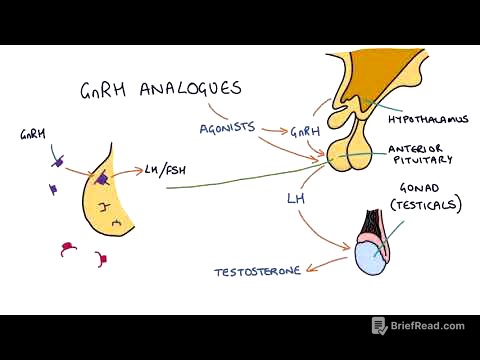TLDR;
Marcel Krass shares his journey from Christianity to Islam, detailing his initial prejudices, the intellectual and spiritual questions that led him to question his faith, and the peace and fulfillment he found in Islam. He emphasizes the importance of seeking the truth, the mercy of Prophet Muhammad, and the personal connection with God through prayer.
- Marcel was raised Christian but converted to Islam at 18.
- He had prejudices about Islam before learning about it from a Pakistani friend.
- The concept of the afterlife and the Oneness of God were key factors in his conversion.
- He experienced challenges, including family disapproval and cultural adjustments.
- He found peace and happiness in Islam, emphasizing the importance of prayer and connection with God.
Intro [0:00]
Marcel Krass reflects on his initial reaction to learning about Islam, acknowledging that while the teachings resonated with his beliefs about one God, he was conflicted due to the negative image of Islam. He recalls a personal struggle and ultimately accepting Islam as the truth, leading to a profound spiritual experience.
Who is Marcel Krass? Can you tell us briefly about your life? [1:05]
Marcel Krass introduces himself as a 48-year-old German who was raised Christian and converted to Islam at the age of 18. He is married with three sons, studied electrical engineering, and has been actively involved in preaching Islam in Germany since 2007.
How is your life in regards to faith? What were you believing in? [1:35]
Marcel explains that he was raised Christian and regularly attended church until he was eight. He believed in one God and the stories of the prophets, but he struggled with the concept of the Trinity. He often prayed and sought God's help during difficult times in his life.
What was the thing that made you question your beliefs? [2:33]
Marcel shares that his primary issue with Christianity was the concept of the Trinity, which he found too complicated. Additionally, he felt that Christianity lacked a clear explanation of life after death, a topic he was very interested in. He sought answers but found the Christian perspective on the afterlife unsatisfying, leading him to question his beliefs.
How did you first hear about Islam? Did you have any prejudices? [3:40]
Marcel admits he had significant prejudices about Islam before learning about it. He didn't have Muslim friends until he was about 16 or 17. His initial knowledge of Islam was limited to stereotypes, such as Muslims not eating pork and media portrayals of Islam as aggressive and dangerous.
How did your journey to Islam begin? [4:49]
Marcel's journey to Islam began when a Pakistani friend started discussing the concept of one God with him. Initially, his friend didn't mention Islam, but when he did, Marcel realized it aligned with his own beliefs about God. However, he struggled with the negative image of Islam and the potential social consequences of converting.
Did you also find answers to your questions about the afterlife? [6:24]
Marcel inquired about the afterlife from his friend and was given a book describing the journey from death to paradise or hell. The detailed account captivated him and made him realize the seriousness of the decision he faced, understanding that he needed to accept Islam before he died.
You already convinced in your heart? [7:38]
Marcel confirms that he was convinced in his heart about the truth of Islam. The seriousness of dying without faith motivated him to consider converting, but he still hesitated due to the negative image of Islam. He believed that if he sincerely worshiped God, he would not be abandoned, which gave him courage.
So, how long did it take for you to be introduced to Islam and then be convinced? [8:30]
Marcel says the entire journey took about 10 months. One night, while driving, he had a profound realization about the importance of eternity, which solidified his decision. He then told his Pakistani friend that he wanted to convert.
How are your feelings when you're taking the shahada? [10:38]
Marcel describes feeling a warmth in his heart and a sense of brotherhood when taking the Shahada. He was welcomed by many people, and his first prayer was a beautiful experience. He felt a deep connection with God, which ended his search for happiness.
Some Christians say they feel connected to God and don't need anything new when they pray. What would you say to them? [11:46]
Marcel acknowledges that people can find emotion in other religions, but he emphasizes that the truth is paramount. He argues that emotions alone are not sufficient and that religion must be based on truth. He believes God gave people minds to think and that they should not blindly follow beliefs that contradict reason.
How was your sahahada moments? [13:05]
Marcel describes his Shahada moment as a huge burden being lifted from his shoulders. He now tells others who hesitate that taking the Shahada may seem daunting, but once they do, they will feel relieved. He compares it to God asking for the first step, promising to come closer in return.
How was your family's reaction? [14:41]
Marcel admits he made a mistake by not discussing Islam with his parents during the 10 months he was learning about it. When he told them he had converted, his father reacted by saying Muslims are terrorists, and his mother became hysterical. He acknowledges it was difficult because they were unprepared.
Have you ever had a conversation with someone about how their thoughts on Islam have changed? [17:45]
Marcel confirms that people often ask him questions after learning about his conversion. Common questions include those about marrying four women and Jihad. These conversations reveal prevalent misconceptions about Islam.
Have you had such conversations about prejudices about Islam? [18:25]
Marcel shares that what he admired most about Prophet Muhammad was his mercy. He recounts stories of how the Prophet was treated and how he responded with forgiveness and compassion, even when he returned victoriously to Mecca.
Which they would you want to witness if you had a chance in his life? [20:00]
Marcel would want to witness Prophet Muhammad's last day. He recalls a story of the Prophet smiling as he watched his companions praying, signifying that his mission was complete. Marcel reflects on the immense challenges the Prophet faced and how he successfully conveyed his message.
Did anyone around you become Muslim after being inspired by you? [21:45]
Marcel shares that his wife converted to Islam a few months after him, and they married soon after. He had always wished to have a family with a Muslim woman and prayed for her acceptance of Islam.
And how did she come and tell you this? [22:57]
Marcel recounts the moment his wife told him she wanted to become Muslim. They were visiting his Pakistani friend when she nervously announced her decision. She took the Shahada in front of them, which was one of the happiest moments in his life.
What was the major challenge that you faced after becoming Muslim? [23:41]
Marcel says the major challenge he faced was adjusting to a completely different culture. In the mosque he attended, he felt like an alien because there were only a few other German converts.
Does anyone have to change their culture to become Muslim? [24:43]
Marcel clarifies that becoming Muslim does not mean one has to change their culture or become Arab. He notes that Islam accepts different cultures as long as they do not contradict religious principles. He emphasizes that Islam should not be portrayed as an Arabic desert culture imposed on others.
Have you ever experienced an extraordinary event for yourself that you had a special connection with Allah? [26:25]
Marcel recalls his first Umrah as an extraordinary moment when he felt a special connection with Allah. He felt guided to a very special experience in his life.
Did you cry when you saw the Kaaba? [27:04]
Marcel describes his first trip to Mecca as indescribable, noting that he cried the whole time. He couldn't get enough of being there and performed Umrah five times during that trip.
How did it feel to step on the same land as the Prophet Muhammad (pbuh)? [28:39]
Marcel says that stepping on the same land as Prophet Muhammad made him feel as if he could see the Prophet all around him. He felt like he was living the history of Islam.
How do you see the difference between the Marcel before Islam and Marcel after Islam? [29:08]
Marcel says the biggest change in his life after Islam is the calmness and sweetness in his heart, knowing why he is here.
If you had a chance to speak to all non-Muslims, what would you say in a few moments? [29:23]
Marcel would quote a verse from the Quran, asking if people think they were created just for amusement and wouldn't be brought back to God. He encourages non-Muslims to look inside themselves and search for the reason behind the universe.
